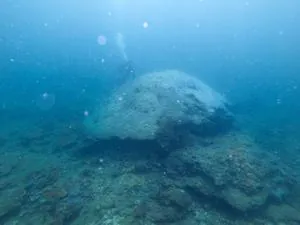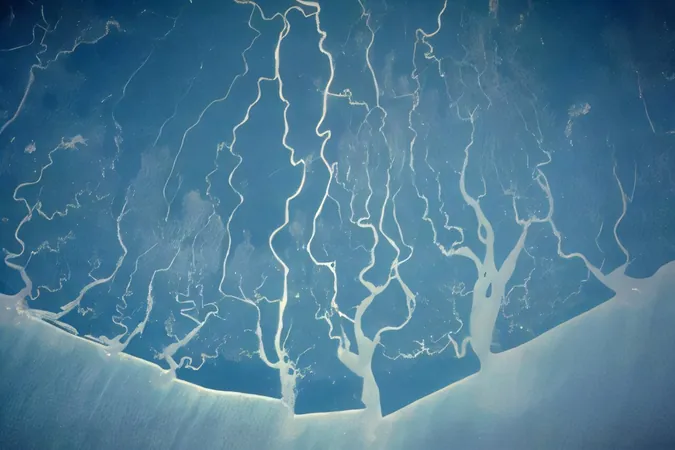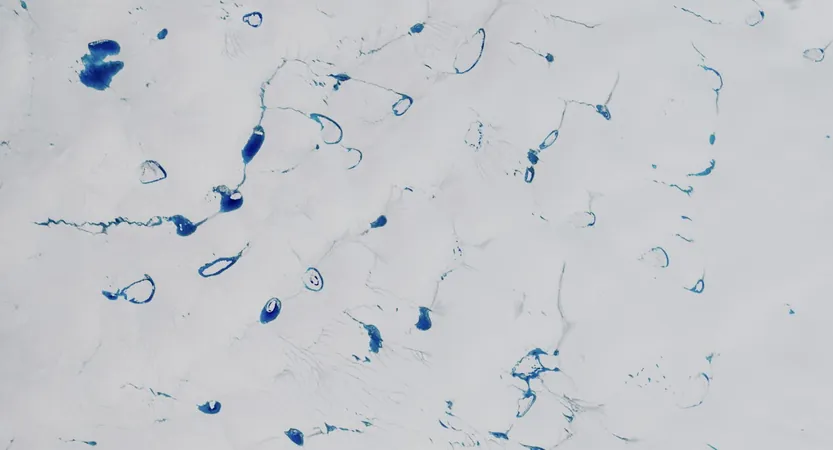
Corals Reveal Start of Deforestation in Borneo - A Wake-Up Call for Our Oceans!
2025-07-03
Author: Li
Corals as Nature's Timekeepers
Recent groundbreaking research from the University of Leicester has unveiled stunning evidence within coral skeletons that tracks the onset of industrial deforestation in the Malaysian rainforest and its devastating impact on coastal ecosystems. The findings, detailed in the prestigious journal *Scientific Reports*, demonstrate how these marine gems serve as silent witnesses to environmental changes.
A Collaborative Effort to Uncover History
Led by Professor Jens Zinke and a team of experts from the UK, Malaysia, and Australia, the study utilized coral cores collected off the coast of Borneo. These researchers, including Dr. Arnoud Boom and former PhD student Walid Naciri, were fueled by a Royal Society Wolfson Fellowship, reflecting a serious commitment to environmental science. Importantly, this research builds on earlier studies that revealed corals as valuable archives of sediment discharge caused by deforestation.
Unlocking Environmental Secrets
The massive corals analyzed in this study are key to bridging the gaps in our understanding of environmental history. By absorbing trace elements from seawater during growth, these coral skeletons provide crucial insights into past environmental conditions. The team meticulously sampled coral cores using underwater drills to extract long segments from various coral colonies, revealing data on sedimentation and environmental health.
Laser Technology: Peering into Coral's Past
During the COVID-19 pandemic, these coral samples were sent to the John de Laeter Centre in Perth for advanced analyses using sophisticated laser ablation technology. Professor Zinke explained that the analysis focused on the barium and calcium ratio (Ba/Ca) within coral skeletons. This ratio is critical; barium is released from fine sediment when rivers merge with salty ocean waters, making it an effective proxy for tracking sediment erosion over time.
Deforestation: A Direct Threat to Coastal Ecosystems
The study revealed a significant environmental shift post-1950, when Ba/Ca records indicated rising levels of sediment discharge correlating with increased soil erosion due to the onset of industrial deforestation. As local ecosystems suffered, the corals reflected these changes, clearly indicating the long-lasting consequences of human actions on nature.
Calls for Action—A Global Responsibility
In light of these findings, former PhD student Walid Naciri emphasized the urgent need for local governments to combat deforestation by providing sustainable income alternatives for communities and moderating global demand for palm oil and pulpwood. He stated, "This study underscores the essential link between land and ocean ecosystems, advocating for tropical forest restoration to mitigate sediment discharge and enhance carbon uptake."
A Fingerprint of Environmental Change
Dr. Arnoud Boom added that the research has painstakingly identified a 'fingerprint' of industrial deforestation's onset, influencing soil erosion in Malaysian Borneo and impacting the Miri-Sibuti Coral Reef National Park. The resilience and longevity of these corals have made them pivotal in understanding our environmental history and planning for our future.
This compelling study isn’t just a wake-up call for scientists; it serves as a crucial message for communities globally to take action to protect our forests and oceans.






 Brasil (PT)
Brasil (PT)
 Canada (EN)
Canada (EN)
 Chile (ES)
Chile (ES)
 Česko (CS)
Česko (CS)
 대한민국 (KO)
대한민국 (KO)
 España (ES)
España (ES)
 France (FR)
France (FR)
 Hong Kong (EN)
Hong Kong (EN)
 Italia (IT)
Italia (IT)
 日本 (JA)
日本 (JA)
 Magyarország (HU)
Magyarország (HU)
 Norge (NO)
Norge (NO)
 Polska (PL)
Polska (PL)
 Schweiz (DE)
Schweiz (DE)
 Singapore (EN)
Singapore (EN)
 Sverige (SV)
Sverige (SV)
 Suomi (FI)
Suomi (FI)
 Türkiye (TR)
Türkiye (TR)
 الإمارات العربية المتحدة (AR)
الإمارات العربية المتحدة (AR)